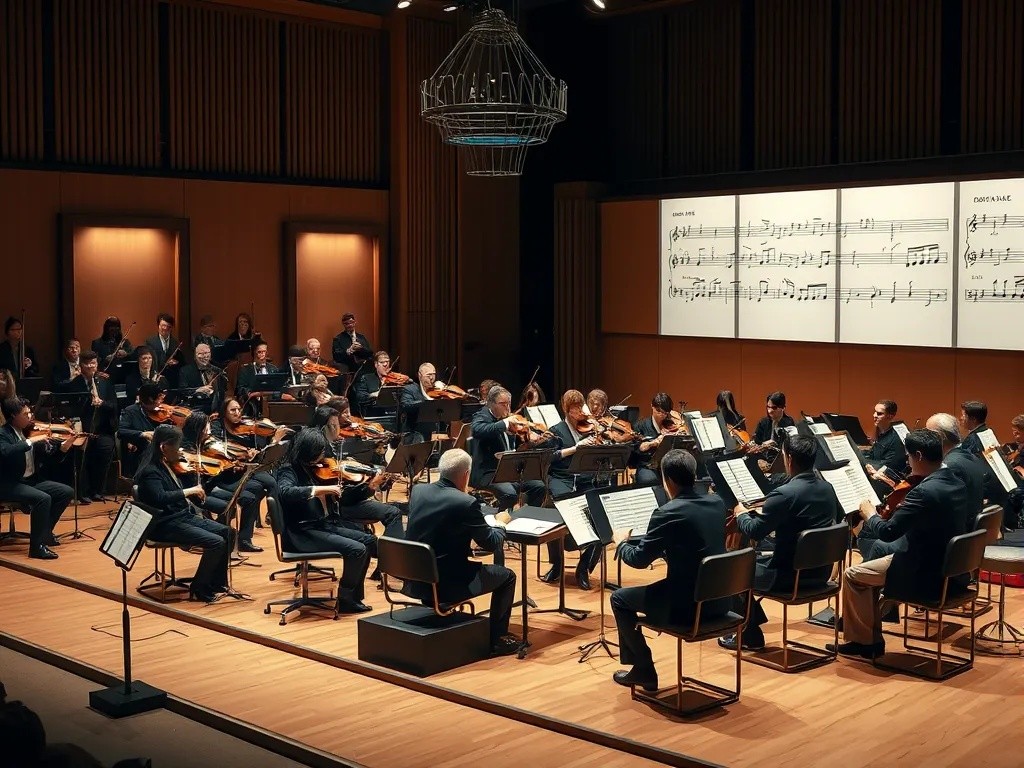In recent years, there has been a significant advancement in the field of Artificial Intelligence (AI) and Augmented Reality (AR). These technologies have become increasingly popular and have the potential to enhance virtual experiences in various fields such as gaming, education, healthcare, and...
Computer Wrote a Symphony That Was Performed by a Symphony Orchestra

In a groundbreaking moment that bridges the gap between technology and classical music, artificial intelligence has achieved what many thought impossible: composing a full symphony that was performed by a professional orchestra. This remarkable achievement represents a significant milestone in both musical composition and artificial intelligence development.
The Dawn of AI-Composed Classical Music
The intersection of artificial intelligence and music composition has been evolving for decades, but recent advances in machine learning and neural networks have enabled computers to create increasingly sophisticated musical works. The symphony in question was generated using advanced AI algorithms trained on thousands of classical compositions, allowing the system to understand complex musical structures, harmonies, and orchestral arrangements.
How AI Composes Music
The process of AI music composition involves several sophisticated techniques:
- Pattern Recognition: The AI analyzes existing classical works to identify recurring patterns, chord progressions, and structural elements
- Neural Network Training: Machine learning models are trained on vast databases of orchestral scores and compositions
- Generative Algorithms: The system uses probabilistic models to generate new musical sequences based on learned patterns
- Orchestral Arrangement: Advanced algorithms distribute musical themes across different instrumental sections
The Performance: From Digital to Orchestra
The transition from computer-generated score to live orchestral performance required careful collaboration between technologists and musicians. Professional conductors and musicians worked closely with the AI development team to ensure the composition could be effectively interpreted and performed by human musicians.

Technical Challenges
Several technical hurdles had to be overcome to make the performance possible:
- Score Translation: Converting the AI-generated musical data into traditional musical notation
- Timing and Dynamics: Ensuring the composition included proper tempo markings and dynamic instructions
- Instrumental Compatibility: Verifying that all parts were playable on traditional orchestral instruments
- Musical Coherence: Maintaining thematic consistency throughout the multi-movement work
Reception and Impact
The premiere performance generated significant interest from both the classical music community and technology enthusiasts. Critics noted the composition's surprising emotional depth and structural sophistication, while acknowledging its unique computational origins. The piece demonstrated that AI could create music that resonates with human audiences on an emotional level.
Implications for the Future
This achievement opens new possibilities for musical creation and collaboration. Rather than replacing human composers, AI tools may serve as powerful collaborators, offering new creative possibilities and helping composers explore uncharted musical territories. The technology could democratize composition by making sophisticated musical tools accessible to a broader range of creators.
Looking Forward
The successful performance of an AI-composed symphony marks just the beginning of a new era in music creation. As artificial intelligence continues to evolve, we can expect even more sophisticated compositions that push the boundaries of what's possible in classical music. This breakthrough demonstrates that the future of music may involve unprecedented collaboration between human creativity and artificial intelligence.
The symphony stands as a testament to the potential of technology to enhance and expand human artistic expression, proving that the marriage of artificial intelligence and classical music can produce works of genuine beauty and complexity that honor the rich traditions of orchestral music while pointing toward exciting new possibilities.



